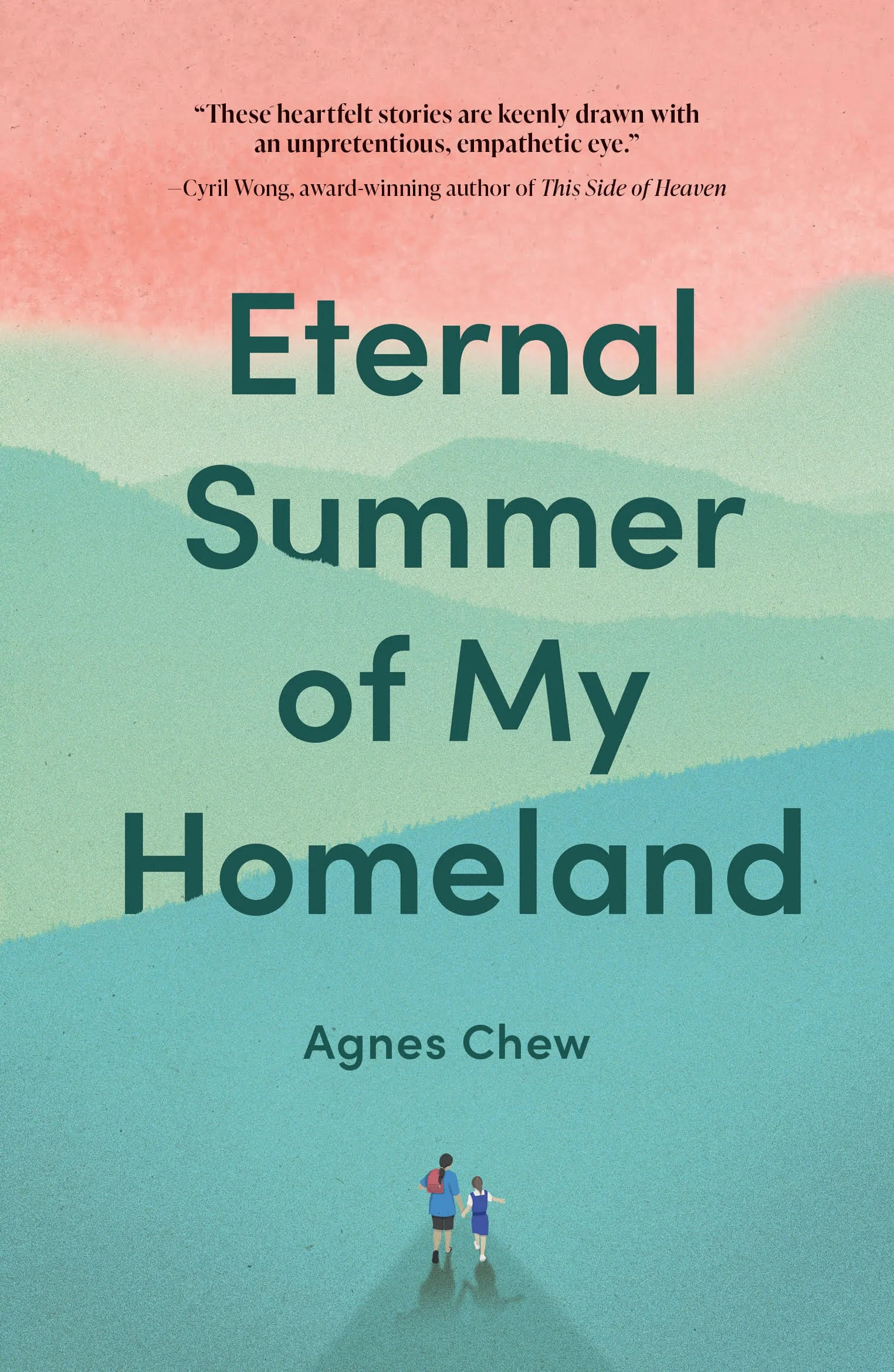Stories in the Sunshine: An interview with Agnes Chew
31 July 2023
In the short stories of Agnes Chew’s Eternal Summer of My Homeland, the quotidian becomes a site of tension and release. Chew crafts narratives from slices of life, each one featuring a protagonist that encounters a fracture in some way, often emotional, sometimes spatial and usually relational. These are stories that run against the current of grander narratives of success that Singapore is known for, and yet, they are far from being improbable. In fact, the truth is probably a lot more bitter. And this is where Chew eases the breaking with possibilities. They may not be for everyone, but sometimes, a difficult lesson learned is not an ending but a way for one to carry on.
Here’s Agnes in conversation with Mackerel, shedding light on the process of bringing this collection to life.
1. How has your writing evolved from your first creative non-fiction collection, ‘The Desire for Elsewhere?’
My first book was published in 2016. I wrote it while I was working in Singapore, in my mid-twenties. Since then, I’ve moved to London where I completed my master’s degree, started a new job at the World Bank, got married, left my job, relocated to Germany, gained advanced proficiency in German. Mirroring this series of life transitions, I moved from writing creative nonfiction to fiction and I find myself taking much more risk in my writing. Where I previously wrote travel essays with clear endings in mind, my writing process is now more exploratory; in the realm of fiction, I often begin writing my stories without knowing how they would unravel or end—which is thrilling to me.2. What prompted the move to fiction?
I ventured into writing fiction shortly after I moved from Singapore to Germany in 2020. At that time, I was learning German again and came across certain German words that enthralled me. For instance, Fernweh—comprising the words “distance” and “ache”—captures that deep, intense longing to travel to someplace faraway. Or Verschlimmbesserung: an attempt intended to improve, but instead worsens things. These words resonated with me and offered me solace, especially during the time of a global pandemic when I was unable to travel back to Singapore despite my father being hospitalised. Fuelled by my longing for home, I began to write story after story—each one attempting to encapsulate the essence of a German word that had moved me—all of which were set in a Singaporean context. It felt like a natural next step in my writing journey, and I’ve continued to write fiction since.3. Does living away from Singapore change the way you see the country?
Back when I was living in Singapore, I had always felt caught between the person others expected me to be and the person I aspired to be. That tension stemmed from what felt like the relentless pursuit of growth and productivity that pervaded all aspects of society. It made me long to be elsewhere. Yet now that I am elsewhere, living in Germany, I’ve begun to see more clearly the peculiarities and realities of life in different places. It has also allowed me to be more aware of certain things that I might have normalised, or taken for granted, back home. And so in a strange and unexpected way, living abroad has deepened my appreciation of and connection to Singapore in a way that wouldn’t have been possible had I not left.4. There seems to be a deliberate thread between the title of your collection and your Commonwealth prize-winning short story, ‘Oceans Away From My Homeland.’ Both titles are rooted in natural imagery and yet contain this loaded word, ‘homeland.’ Not just home, but homeland. Any thoughts on that?
In coming up with the titles for both the collection and the short story, the choice of the word “homeland” felt natural to me. As a Singaporean who has been living in Germany for the past three years, I’m gradually learning the ways of being in my adopted country, but I find that there is a quiet yearning for Singapore that never really goes away. And it is out of that longing, out of that place of vulnerability, that both the collection and the short story have emerged. The longer I live away from Singapore—the more homes I find and build and make in different parts of the world—the greater the significance the word “homeland” takes on for me. It extends beyond the feeling that home encapsulates to encompass the geography of my home country: an actual place, replete with the solid, tactile land across which I have once walked each day, one that I, when in Germany, am only able to access through other means.5. In Eternal Summer of My Homeland, you present various selves as slippage, a kind of in-between othering that seems to sit against the very utopian ideal of Singapore. Some of the characters choose their circumstances and some exist within a kind of inevitability. All are marked by loss. Why did you choose to craft your stories against the hopeful tone of your title?
Growing up in Singapore, and having worked in various government, multilateral and non-profit organisations over the past decade, there are several socioeconomic issues that I have been and continue to be concerned by. When I did my master’s degree in international development years ago, I sought to better understand and examine the issue of inequality and societal wellbeing in Singapore through my dissertation, which was featured in the Singapore Policy Journal. But I felt compelled to explore these issues from a different, non-academic perspective; and writing about them in a fictional context has allowed me to dig deeper into them in a way that I hope is more emotionally resonant. I believe “eternal summer” can represent not only a warmth from which comfort is derived, but also a searing heat that precipitates discomfort and anxiety. In this vein, the title serves as an invitation for us to think about the kind of home we want to live in and be a part of, to consider the compromises we are willing or unwilling to make as a society.
6. There’s a strong sense of the quotidian in the stories and their settings, but each protagonist also carries a seed of rebellion, a difference. In coming up with the various story ideas, were you led by your characters or by their situations?
Given that each of these stories were inspired by a specific German word, what came to my mind when I began writing them were the characters, each caught in a particular situation. I would then follow these characters on their respective journeys to gradually uncover the stories.
7. What are you working on next?
I’m currently working on my first novel.



